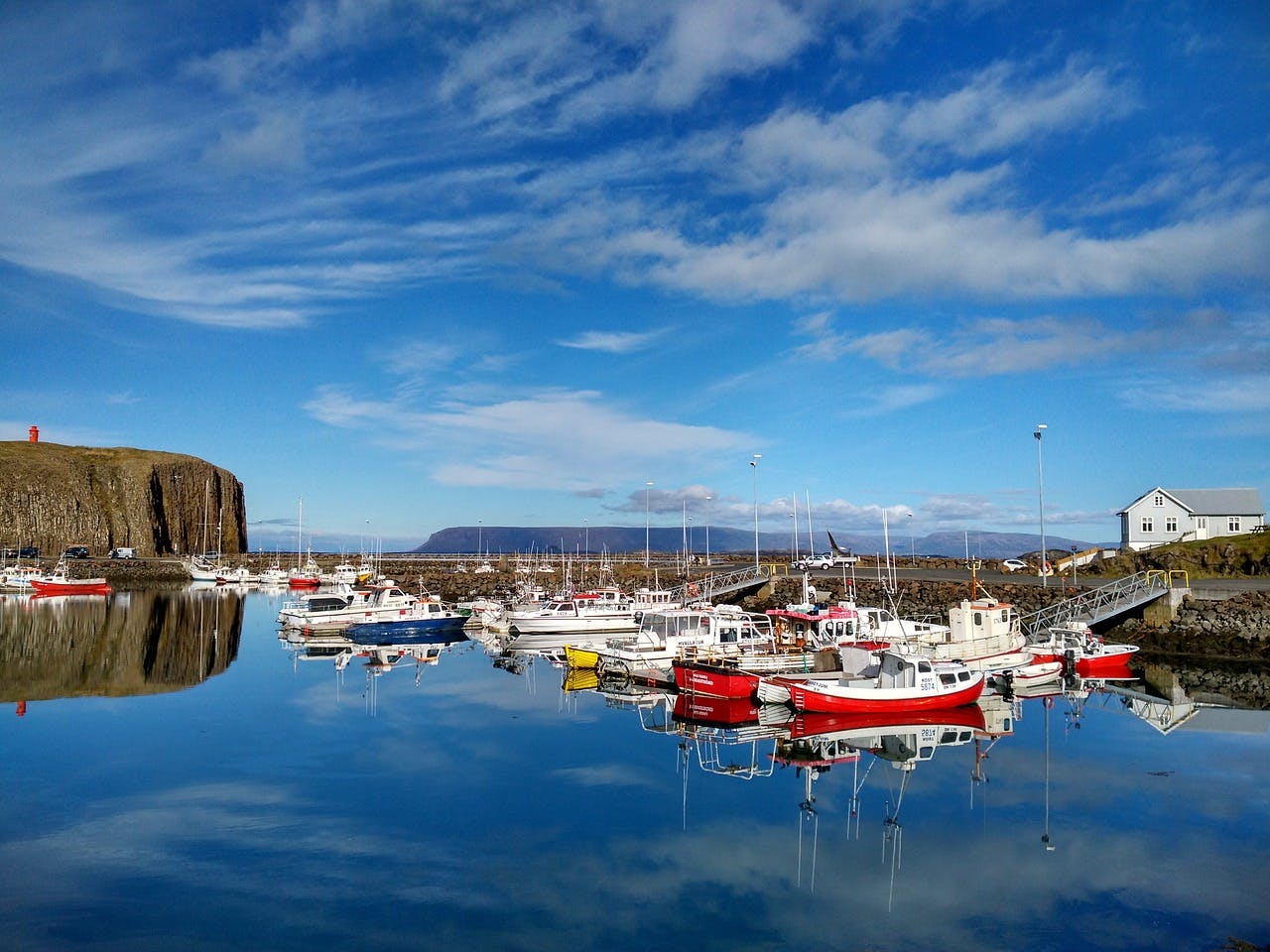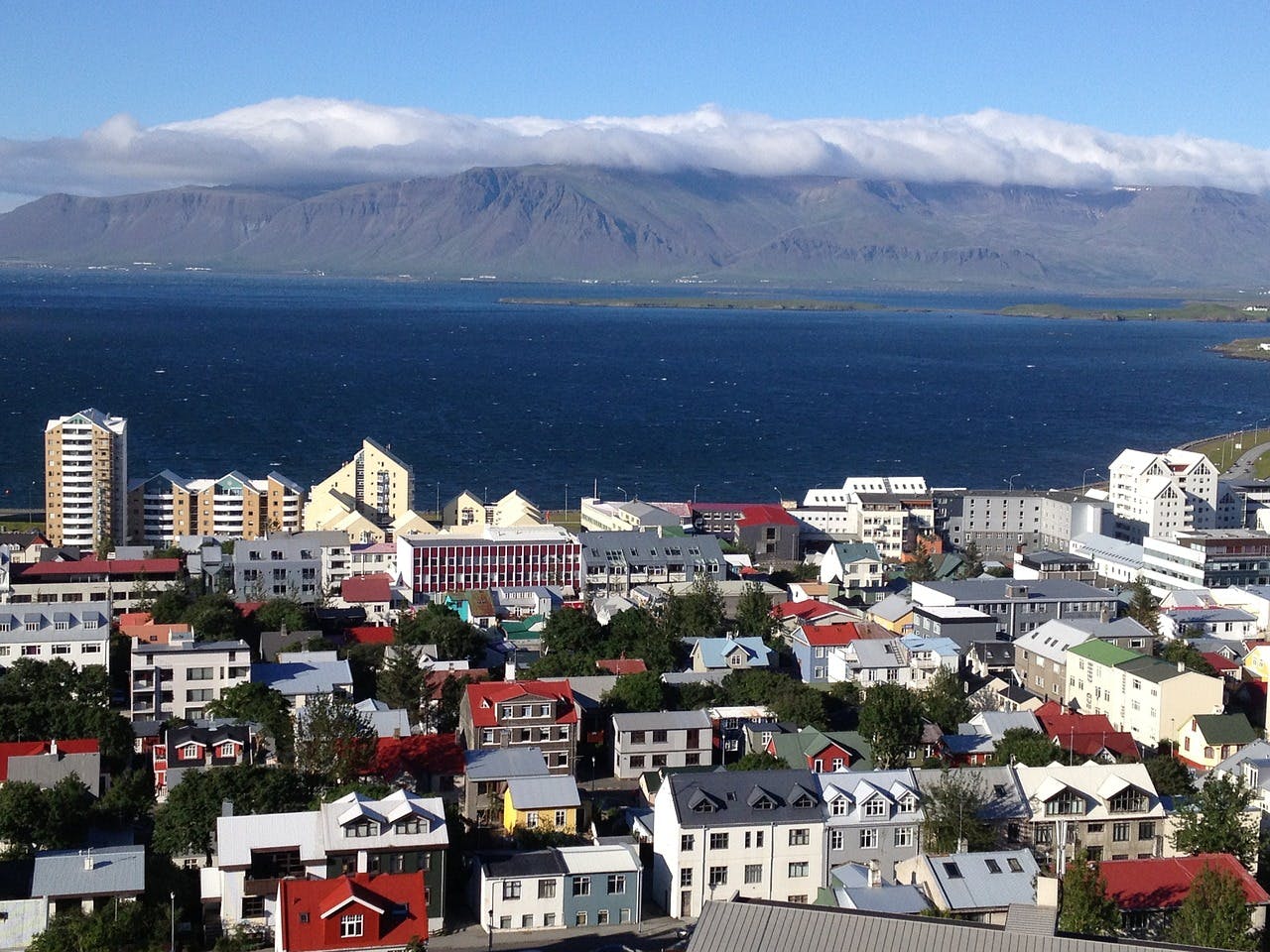Article
Working remotely and living in Iceland
Remote work for many of us used to be an alien concept. It was something that your super-intelligent software developer friend did that you didn’t really understand. It was something that your cousin did from Thailand for a big multinational corporation where he got paid in Euros and lived like a king.
Remote working used to be a myth that only a handful of people had access to, but this has changed dramatically around the world in recent years.
One of the positive aspects of the pandemic is that we have realised that there were actually meetings that could have taken place by email. We also now understand that working from home or remotely is not such a crazy concept.
Most businesses around the world have now had experience of teleworking. We now know that there are new opportunities for us as employees where we actually carry out our work activities.
Last summer, when the French borders were closed, a record number of local workers rented summer flats in the south of the country. They couldn’t go on an international holiday. Instead, they preferred to work far away by the sea, where the weather was warm and an Aperol Spritz was waiting for them on a terrace at the end of the day.
You may not realise it, but this type of remote working can also extend to an international change of scene. For example, if you’ve always wanted to visit one of the most fascinating countries in the world, Iceland.
Iceland is a favourite travel destination for many, but it can also be a temporary home for you if you have the opportunity to work remotely and want to live here for up to 6 months.
The government of Iceland has a special visa in place to address precisely this kind of stay. It’s called the Long-Term Visa for Remote Workers.
So what is this visa? How do you get it? Why should you choose to work remotely in Iceland? Read on to discover it all.

What is the Long-Term Visa for Remote Workers?
This is a special visa that allows the holder to stay in Iceland for up to 180 days while working abroad. People who can obtain a long-term visa for remote work deliver their work to a company operating outside Iceland.
Those who receive this special visa are not allowed to work for Icelandic companies during their stay.
How Do I Qualify for the Long-Term Visa?
To qualify for the long-term visa, you must be from a country outside the EU/EEA/EFTA. Countries like the United Kingdom, the United States of America and Australia all fall into this category.
Your country of citizenship must also not require a visa for travel to Iceland. The directorate of immigration has a complete list of these countries.
You must not have received a long-term visa from the Icelandic government in the last 12 months. The purpose of your stay must be to work from Iceland.
The Immigration Service also stipulates that you must not intend to continue living in Iceland after your long-term visa has expired.
There is a financial disclosure that you must submit. You must prove that your monthly income is the equivalent of 1,000,000 ISK or 1,300,000 ISK if you are also applying for a spouse or cohabitant who will be living with you.
If you have read the above criteria and feel that all these points apply perfectly to you, you can apply.
How To Apply For the Long-Term Visa
The first step is to pay the processing fee, which is not too expensive compared to other countries' processing fees at around 7000 ISK (about 55 USD or 40 GBP).
You must pay this fee before you submit your application. Proof of payment must be submitted with your application, so make sure you receive this information at this time.
Then you should begin the application process; you can do so by downloading and filling out the form provided by the Icelandic Directorate of Immigration.
If you are applying for other people such as a spouse or children, a form must be completed for each of them.
Make sure you have all the necessary supporting documents and then submit the application in paper form. This can either be done in person (there is a postbox in the lobby of the immigration office) or by mail.
Once you have done all this, you will be notified of your success by the Icelandic immigration authorities.
You won’t receive your visa until you are in Iceland. Once you arrive, you will need to let the immigration department know by contacting them at utl@utl.is, and they will issue you with your visa.
If you are already in Iceland when your visa is approved, you are allowed to work in the country for 180 days, minus the days that have passed since your arrival.

What Are the Advantages of Working Remotely in Iceland?
This honestly is a bit of a no-brainer.
Can you imagine what it would be like to finish work at the end of the week and then go on a glacier hike at the weekend?
The possibilities are literally endless. There is always so much to see and do in Iceland that you will never run out of things to put on your bucket list.
Iceland’s internet is currently the second-fastest in the world, so you can be sure that there will never be a problem checking in with your team via zoom. Sending and receiving large files is super easy. The internet is pretty consistent throughout most populated areas in the country.
Even small country towns in Iceland have faster internet than a lot of other nations. This might explain why two-thirds of the Icelandic population have Netflix accounts.
The general attitude to work in Iceland is somewhat more relaxed. This is not to say that Icelanders don’t work hard; on the contrary, they are known as incredibly hard-working people. Culturally, Icelanders emphasise that time outside of work is for you.
If you settle in the capital Reykjavík, it is very easy to get around without a car. The city has a good bus system, and once you’re in the city centre, you can reach most things on foot.
Iceland is also an incredibly safe country for a foreigner. Most adults speak a decent level of English, so everyday things like buying groceries or ordering a meal in a restaurant involve minimal problems with a language barrier.

Where Are the Best Places to Work Remotely From in Iceland?
The answer to this question really depends on what you are hoping to get out of your time in the land of fire and ice when you’re not working.
As mentioned before, the internet in Iceland is pretty reliable in most parts of the country, so you’re only really limited to places with a good connection – and that leaves a lot of options.
If you would like to be close to festivals, restaurants, nightlife and amenities like a mall and cinemas, Reykjavík might be the best spot for you to base yourself.
If you have access to a car, you can also make plenty of trips from here. From Reykjavík, it’s only a 2-hour drive to Vík on the South Coast, a 5-hour drive to the capital of the North, Akureyri, and only a couple of hours to the entry to the Westfjords.
Another option might be that you divide your time throughout your stay, spending a bit of time in each of the four corners of Iceland. You could click away at your keyboard throughout the week and take in all the sites on the weekend.
As long as you have an internet connection, the country is literally just waiting for you to discover it.
Why is Working Remotely Good For Your Mental Health?
We can all agree that maintaining good mental health is beneficial for both employees and employers. Good mental health is also cost-effective for everyone. The World Economic Forum predicts that by 2030, the annual cost of mental illness will surpass $6 trillion.
Working remotely instantly cuts down on a few things. Commuting time to and from work is almost non-existent. Businesses that allow their workers to operate from home have also reported significant reductions in sick days and increased productivity.
The most significant mental health benefit to an employee who works remotely is the chance to create a fun and exciting work/life balance.
Many of us work to earn money and enjoy experiences such as travelling, absorbing another culture or going on an adventure. If you can work remotely, you can earn money while being in a place where you can experience all these things in your own time.
You no longer have to use your annual leave to be able to set off on your dream vacation to Iceland. If you’re already here, you can digest your adventure when you’re done working and on weekends.

Why Should I Consider Remote Working in Iceland?
Iceland really is the perfect getaway destination. If you could choose to base yourself here for a more extended period, you would be sure to have an unforgettable time.
Iceland is ideally placed between the USA and mainland Europe making it pretty easy to get to from many places in the Northern Hemisphere.
The quality of life in Iceland rates very high on the international stage, and the natural attractions available are second to none.
Imagine clocking off work on a Friday afternoon, and the second you close your laptop, you have an entire list of opportunities in your own figurative back yard.
You could spend the weekend visiting volcanoes. You could take a weekend trip to the South Coast and go glacier hiking. You could catch a quick flight to the North and take in the gentle giants of the sea with a whale watching tour. You could even start work a bit later and stay up late for a chance to see the northern lights.
The best reason to choose Iceland as a destination for remote work is that you will have a unique experience in your free time that you will not have anywhere else in the world.
Conclusion
When it comes to our work, the nature and extent of our geographical location is no longer controlled in the same way as it used to be. As long as we have a connection to the internet, we can carry out many of our daily tasks from pretty much anywhere.
If you can choose to do your work wherever you want, the real question is, ‘Why would you choose to do it on your couch in your pyjamas?’
If you can do it, remotely working from Iceland could give you the chance to make one of the most naturally beautiful and culturally enriching countries on the planet into your office.
If you would like more information about the long-term visa or would love to know more about working in Iceland, don’t hesitate to drop us a line.